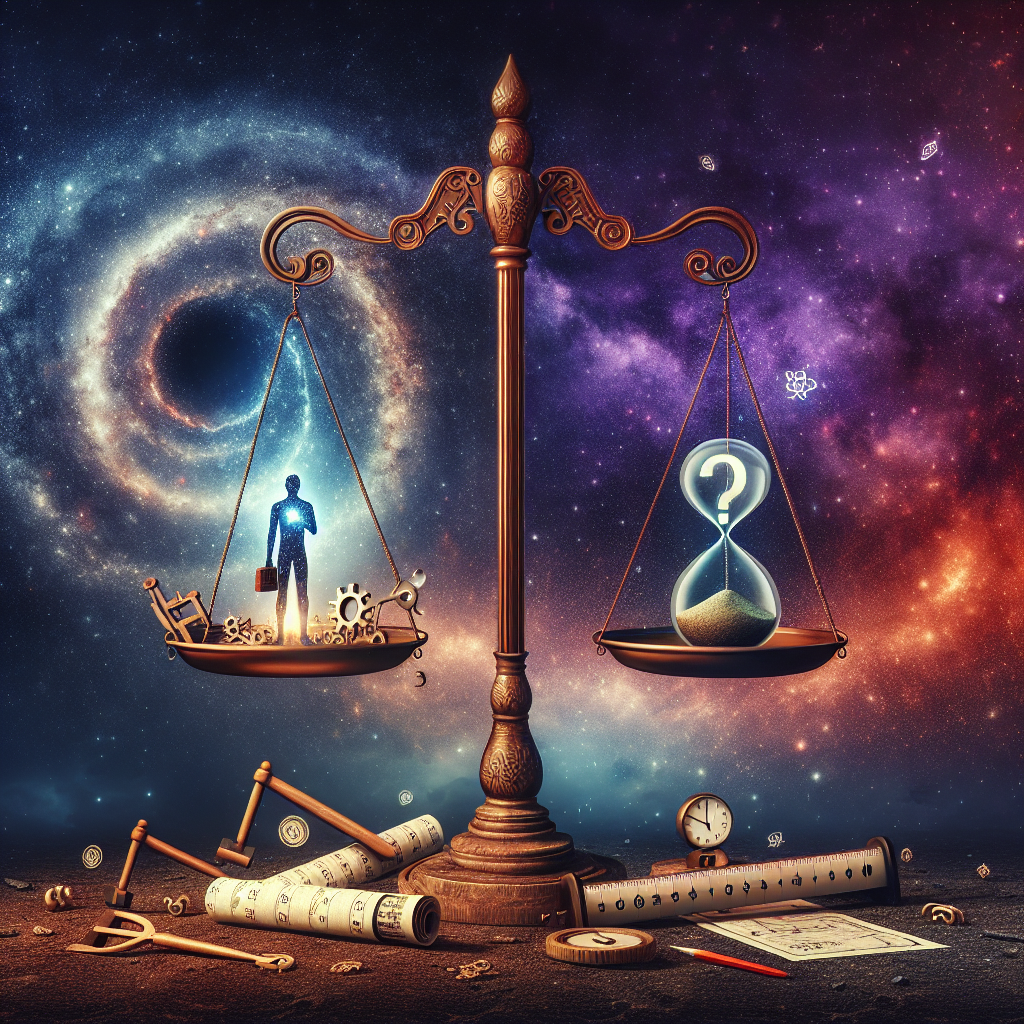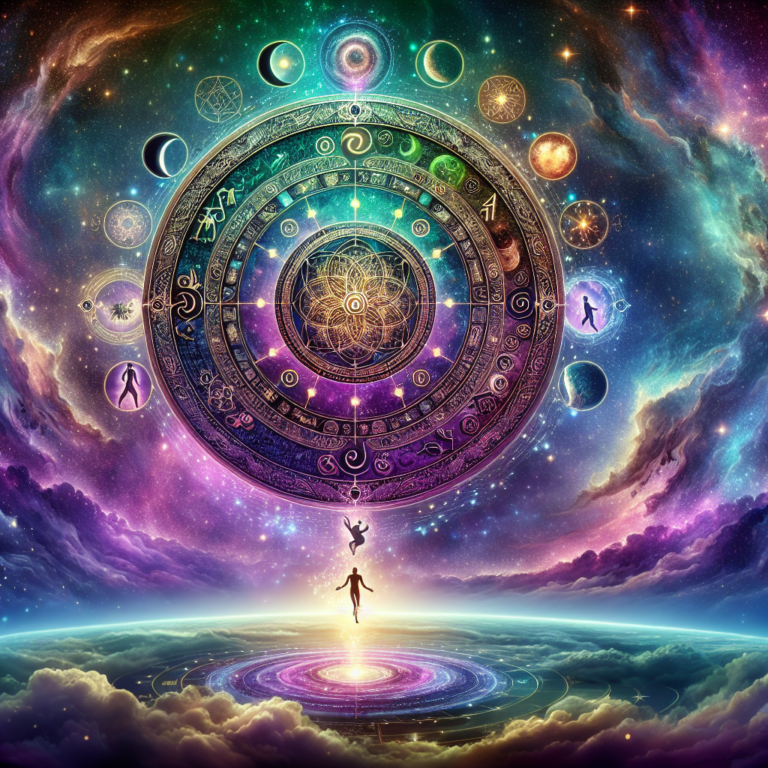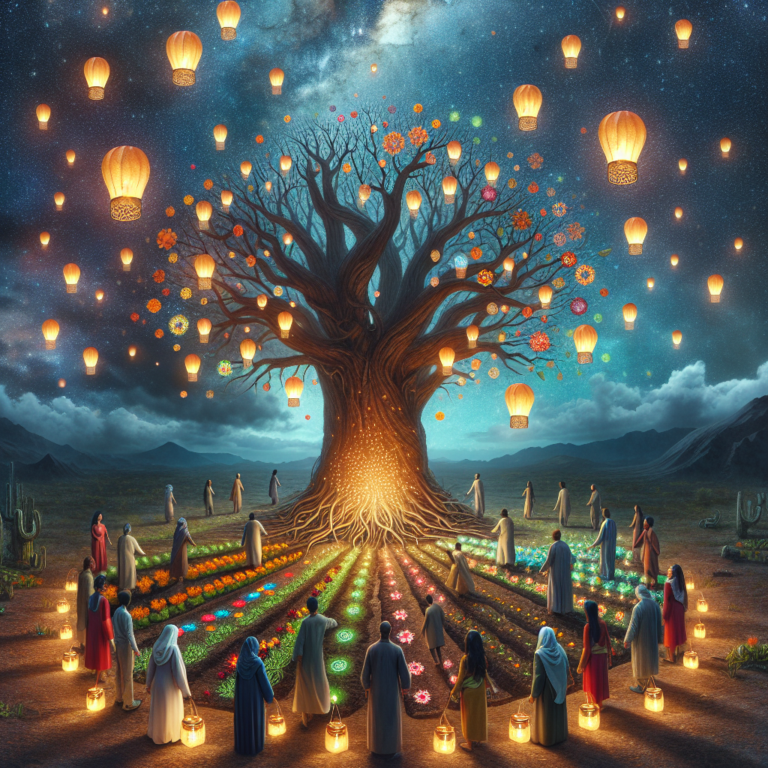Karma vs. Destiny: Are We the Architects of Our Own Fate?
The concepts of karma and destiny have intrigued and perplexed humanity for centuries. Both ideas tap into profound philosophical questions about free will, moral responsibility, and the nature of existence itself. This article aims to unpack the distinctions and intersections between karma and destiny, ultimately addressing the question: are we the architects of our own fate?
Understanding Karma
Karma, derived from the Sanskrit word “karman,” embodies the principle of cause and effect. In many Eastern philosophies and religions, such as Hinduism and Buddhism, karma signifies that every action has consequences, both in this life and in future lives. This notion emphasizes that our choices, whether good or bad, ripple out into the cosmic web, influencing our circumstances and experiences.
Karma operates on several levels. On a personal level, it promotes the idea that one’s moral actions lead to corresponding reactions. Good deeds generate positive karma, leading to favorable outcomes, while negative actions accumulate bad karma, resulting in adverse repercussions. Karma, thus, reinforces ethical behavior and suggests a moral order to the universe, encouraging individuals to act with integrity.
On a spiritual level, karma transcends a single lifetime. It is believed that the karma amassed in one lifetime shapes the conditions of future rebirths. From this perspective, the soul is on a journey, learning and evolving through myriad life experiences. Individuals are given multiple opportunities to rectify their past actions and strive toward enlightenment.
Understanding Destiny
Destiny, often associated with a predetermined course of events, suggests that certain aspects of our lives are fixed and beyond our control. Originating from the Latin word “destinare,” meaning “to make firm,” destiny implies a divine force or universal law that shapes our life’s path regardless of our actions.
Various belief systems approach destiny differently. In some interpretations, particularly within religious contexts, destiny can be viewed as divine will—an all-knowing God has a specific plan for each individual. However, in secular interpretations, destiny can be seen as a culmination of historical, social, and environmental factors that guide our lives in certain directions.
The philosophical debates surrounding destiny often intersect with the notion of free will. If destiny is indeed preordained, can individuals exercise true autonomy? Are we merely following a script written by fate, or do we have the power to influence our trajectories?
Karma vs. Destiny: The Philosophical Debate
The tension between karma and destiny highlights fundamental questions about human agency and moral responsibility. When considering if we are the architects of our own fate, several key points emerge:
Free Will vs. Determinism: At the crux of the debate lies free will—the ability to choose one’s actions independently of external influences. Advocates of free will argue that individuals can shape their destinies through conscious decisions. In contrast, determinists contend that every action is the result of prior events, suggesting that our fates are already inscribed in the universe’s fabric. Karma aligns with the notion of free will, empowering individuals to take charge of their moral journeys, while destiny leans toward determinism, presenting life as a prewritten narrative.
The Influence of Past Actions: Karma emphasizes the impact of one’s past deeds on present circumstances. This concept suggests that while individuals can shape their current lives, they must also reckon with the consequences of their previous actions. In this sense, destiny can be seen as an accumulation of karma, where personal history plays a critical role in shaping one’s current experience.
Learning and Growth: The karmic cycle suggests that individuals learn from their actions over time, promoting personal growth and evolution. In this framework, even though certain circumstances may seem fated, individuals have the opportunity to respond to challenges creatively and mindfully, ultimately influencing their paths. Destiny, on the other hand, may imply fatalism, wherein individuals are limited to their destinies and less likely to pursue growth.
- Interconnectedness: Karma posits that our actions impact not only ourselves but also the collective, which interlinks with the destinies of others. This web of interconnectedness reiterates the importance of ethical consideration in our lives. Destiny could be viewed in a similar light, as our life paths often intersect with those of others, creating a shared experience influenced by communal dynamics.
Bridging the Two Concepts
Rather than being mutually exclusive, karma and destiny can coexist in a harmonious relationship that recognizes the complexity of life. Each individual’s destiny can be seen as an ever-evolving tapestry woven from the strands of karma, where actions taken in past lives contribute to one’s current situation.
The interplay between karma and destiny invites individuals to reflect on their roles as co-creators of their life stories. It allows for the acknowledgment of external influences while empowering individuals to make conscious choices that align with their values and goals. This perspective fosters resilience and encourages growth, highlighting that while we cannot control everything that happens to us, we can control how we respond.
Conclusion
In contemplating whether we are the architects of our own fate, it becomes apparent that both karma and destiny play significant roles in shaping our lives. The interplay between predetermined circumstances and our responses to those circumstances creates a rich tapestry of existence.
While there may be forces beyond our control, our conscious choices and moral actions contribute significantly to the outcomes we experience. Ultimately, embracing the idea that we are co-creators of our fate empowers us to navigate life’s myriad challenges with intention, wisdom, and responsibility.
FAQs
1. How does karma affect my daily life?
Karma affects daily life by reminding individuals that their actions have consequences. Acting with kindness and integrity often leads to positive outcomes, while harmful actions may create negative repercussions.
2. Can destiny be changed?
While destiny often suggests a predetermined path, many believe that individuals can influence their destinies through conscious choices and personal growth. The interplay of karma suggests that actions can reshape life’s trajectory.
3. Are karma and destiny linked?
Yes, karma and destiny are interconnected. Karma represents the effects of past actions, which can influence current circumstances and life paths, while destiny reflects the overarching journey influenced by both past actions and present choices.
4. Does karma only pertain to individual actions?
While karma is often viewed through the lens of individual actions, it also encompasses collective actions and societal dynamics. The interconnectedness of all beings means that group actions can also impact individual karma.
5. Can understanding karma help in dealing with life’s challenges?
Absolutely. Understanding karma can provide a framework for accepting responsibility for past actions, encouraging personal growth, and fostering resilience in facing challenges. It can help individuals make more mindful choices moving forward.
It seems like you may have meant to provide a prompt or a specific request but didn’t include it. Could you please clarify or elaborate on what you would like me to assist you with?, #Karma #Destiny #Architects #Fate, #Karma #Destiny #Architects #Fate, 1736353944, karma-vs-destiny-are-we-the-architects-of-our-own-fate





